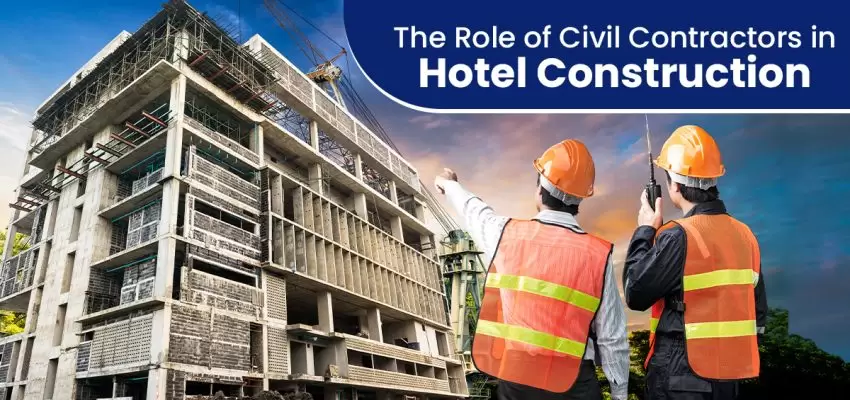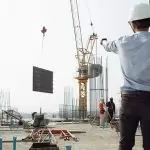As the hospitality industry continues its rapid global expansion, investors pour billions into hotel construction to meet increasing tourism demands. These complex projects require multifaceted planning and phased coordination between owners, architects, project managers and an array of specialty contractors.
Post your Requirement
Among these diverse experts, civil contractors play an absolutely vital role from a hotel’s initial conception through to the final decorative touches. This article unpacks why civil contractors are essential partners for hotel builds of any size or scale across all development phases. We’ll also discuss tips for owners to select the best civil team.
Breaking Down Hotel Construction
Before focusing on specifics around civil contractors, let’s briefly review the basics of hotel build projects. Details vary widely based on the property size, star rating and facilities. But typical stages include:
- Planning – Initial stage after financing is secured. The owner collaborates with architects and consultants on specifications aligned to investor goals, brand standards, local regulations and guest preferences.
- Site and Footings Prep – Foundational stage focused on grading terrain, drainage systems, underground utilities, excavating for basements levels and pouring concrete footings.
- Core and Frame Erection – Major vertical build stage constructing the central core and installing structural steel framework securing walls, columns and floor slabs.
- Exterior Finish – Visual elements are added like roofing materials, windows, exterior stonework or glass, pool construction and landscaping.
- Interior Finishing – Visual elements like drywall, paint, movable décor and soft finishes transform spaces into an immersive, on-brand experience.
- Commissioning and Turnover – Final validation confirms all systems function before branding, final cleaning and pre-opening team training.
The Role of Civil Contractors
Civil contractors are involved in nearly every hotel construction phase in some capacity. However, their major scope revolves around early planning and site preparation executing earthwork and foundations on which the hotel structure rests.
Civil teams are led by project engineers and managers who coordinate surveys, materials and manpower. Crews use excavation equipment and concrete pouring tools to transform raw sites into stabilized building pads.
Activities also include:
- Geotechnical Surveying – Analyzing soil and below-ground conditions to determine appropriate foundation solutions.
- Grading – Cutting, filling and leveling terrain into a flat base to receive structural components.
- Drainage Systems – Water removal infrastructure like storm drains, catch basins and underground pipes.
- Erosion Control – Earth retention structures, silt fencing and vegetation preventing soil destabilization.
- Trenching – Digging pathways for electrical, plumbing and telecom lines between offsite hookups and the hotel.
- Concrete Foundations & Basement Excavation – Pouring footings and structural walls securing and elevating ground floors & sublevels.
Beyond soil prep and poured foundations, civil contractors also handle:
- Retaining Walls + Decorative Concrete – Reinforced walls securing elevation changes visible to guests.
- Underground Utilities – Water, sewer, gas and drainage infrastructure tying into local networks.
- Well Drilling – Installing onsite water wells for properties in remote locations.
- Pool Construction – Structural shell construction if set into ground rather than atop podiums.
- Paving – Roads, parking lots and sidewalks enabling convenient guest access.
Why Civil Contractors Are Essential
From the overview above, we see civil contractors essentially prep and fortify the hotel site itself while enabling hookups to community infrastructure. They ready the property for vertical construction and prevent structural failures.
Without civil teams’ involvement, attempted builds on unstable soil orinadequate foundations risk significant structural defects or outright collapse. And even if structures remain standing on improperly prepped sites, risks like erosion, flooding, electrical shorts or soil toxins can render properties unsafe or inaccessible to guests.
Civil engineering and earthworks are truly fundamental to any build – but especially hospitality projects which require welcoming guest sites with seamless access and safety assurances.Owners who cut corners on civil contractors invite unnecessary risks jeopardizing multi-million investments and brands’ reputations.
Tips for Selecting Your Civil Contractor
Because civil contractors bear so much responsibility across early project phases, select your team carefully by:
- Checking licensing, bonding and insurance documentation
- Calling references from 5-10 past hotel or commercial projects
- Visiting previous site work locally to inspect quality
- Reviewing safety records and training programs
- Comparing bids transparently accounting for materials, manpower and project margins
- Aligning on a payment schedule reflecting work milestones
Ideally, engage your civil contractor from initial planning stages onward for input on budgets, project timelines and recommendations to enhance guest site conditions. Continuity of expert partnerships like these year over year helps ensure each new property meets owners’ vision and brand standards through on-time, on-budget project delivery.
Conclusion
Successful hotel construction demands immaculate planning and seamless coordination between expert partners across every development phase. Among the essential yet out-of-sight skills needed are civil contractors who ready sites for stable, aesthetically pleasing builds accessible for guests.
Be sure to select civil teams with hospitality project experience and safety-conscious site management procedures. The upfront time and budget dedicated to core earthworks and foundation construction directly predict properties’ longevity and operational excellence for decades post-opening. View civil contractors as trusted advisors in bringing owners’ visions to life on-time and on-budget.























Post A Comment